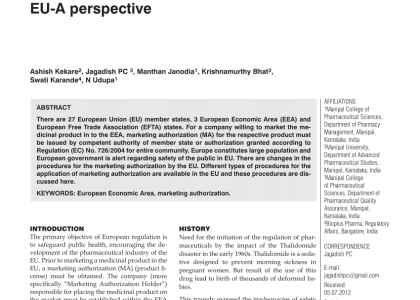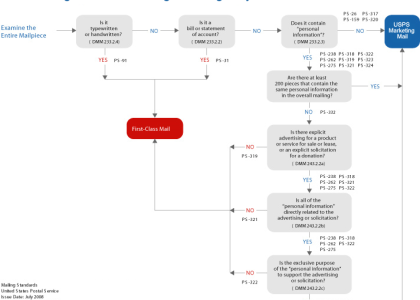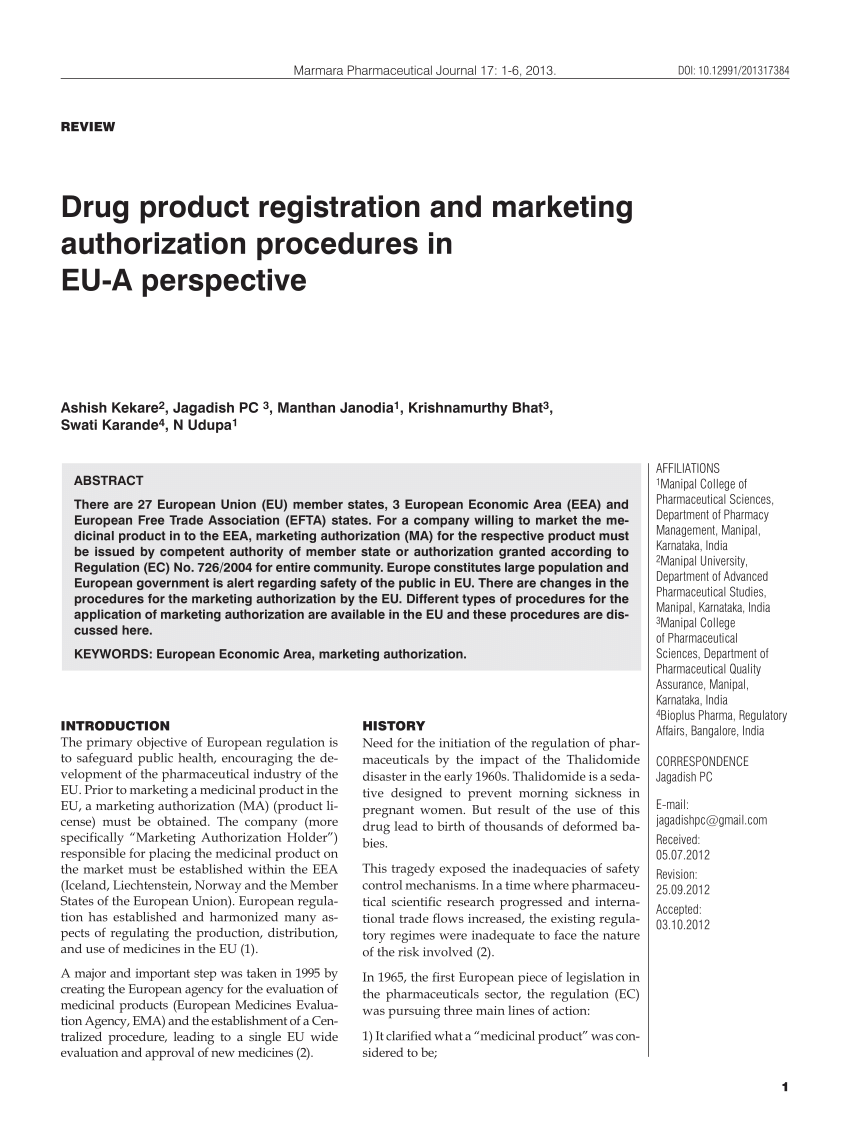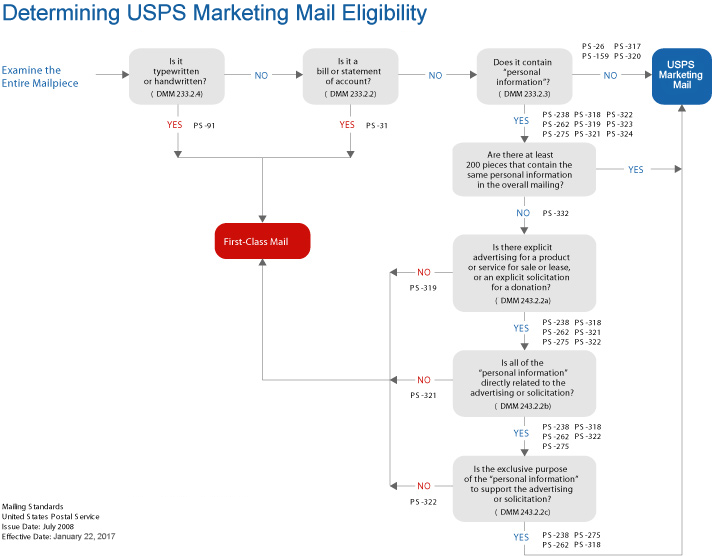When brands forge partnerships and collaborations in the marketplace, one document plays a crucial role in setting the terms of their relationship – the marketing agreement. This legally binding contract outlines the scope of the marketing initiatives, detailing what’s expected from each party, the time frame, compensation, and other important specifics. While such an agreement may seem like just another piece of paperwork, its value and purpose are paramount.
In the evolving landscape of business and commerce, marketing agreements have become an essential tool. These contracts facilitate firm marketing alliances, ensuring that the objectives, benefits, and responsibilities of each entity are clear and agreed upon. Without such agreements, collaborations and partnerships run the risk of disputes, misunderstandings, and failed marketing campaigns.
This article delves into the purpose and importance of marketing agreements – examining the reasons behind their necessity, their implications for all parties involved, and the potential pitfalls of executing marketing initiatives without a fitting contract in place. By the end, readers should gain a robust understanding of the cardinal role these agreements play in shaping successful strategic alliances and marketing endeavours.
Deciphering the Concept of a Contract for Marketing Services
At the heart of any productive professional relationship lies a good understanding of various terminologies and principles. One such concept in the field of marketing is the contract for marketing services. This contract delineates the obligations, roles, and responsibilities of both the marketing agency and the client. It offers a legal and formal structure to an otherwise free-flowing creative process.
A deep insight into a marketing services agreement
A contract for marketing services, also termed as a marketing agreement, serves as a written testament of the details of the professional relationship between a client and a marketing agency. It primarily outlines the scope of work the agency is expected to perform, the period of the agreement, compensation details, clauses for termination, and legal obligations of both parties.
The Importance of a Marketing Services Contract
A marketing services agreement emphasizes transparency and clarity between the involved parties. It ensures that the purpose and goal of the marketing activities are well-aligned with the business objectives of the client. It also safeguards the interests of both parties by outlining clauses for a situation of non-performance or conflict. Thus, it adds a level of security and predictability in an environment that is otherwise subject to a lot variables.
- Clarity of roles: The agreement provides a detailed description of the roles and responsibilities for both parties, thus eliminating any potential confusion.
- Compensation details: It outlines the payment structure and schedule; ensuring both parties agree and adhere to it.
- Dispute resolution: A well-crafted agreement will also have clauses that cater to dispute resolution, thus providing a blueprint for handling disagreements or conflicts.
Understanding the concept of a marketing agreement is essential for any business planning to engage with a marketing agency or a freelance marketer. As the axiom goes, ‘A verbal contract isn’t worth the paper it’s written on.’ Thus, a written agreement not only serves the purpose of documentation but also structures the relationship for efficiency and productivity.
The Fundamental Role of an Agreement in Marketing
A marketing agreement’s main function is to establish a comprehensive understanding between two or more parties that decide to work jointly towards promoting a product or a service. This significant agreement delineates the specific roles, responsibilities, and the duration that each party will maintain in the marketing process. Ultimately, this fundamental pact aims to increase sales and improve overall business performance.
In this kind of agreement, details like the services to be performed and the expectations of the results are specifically outlined. This guarantees everyone involved understands the scope and objective of the marketing campaign. It is crucial that the document covers every foreseeable circumstance that may impact the nature of the marketing collaboration.
Key Aspects of an Agreement in Marketing
A marketing agreement should include several crucial components to ensure that all parties adhere to their commitments and meet their joint goals. Some of these essential aspects include:
- Scope of Work: This part outlines the overall objectives of your marketing campaign and how they will be achieved.
- Duration of the Agreement: represents the timeframe within which the specified marketing operations will be carried out.
- Payment Terms and Conditions: This section manifests the payment process, including how each party will receive compensation for their services or products provided.
- Confidentiality Clause: controls the sharing and distribution of any confidential information shared between all parties throughout the agreement’s life. This helps protect proprietary business information.
In summary, the primary purpose of a marketing agreement is to keep each party involved on the same page with a unified goal. This offers a clear pathway to follow, eradicates unnecessary misunderstandings, and essentially ensures that the marketing process proceeds smoothly and productively. Therefore, it’s a significant tool for establishing profitable and efficient collaborations between businesses.
The Significance of Marketing Contracts for Enterprises
A marketing contract offers a broad range of advantages to businesses, many key ones being often overlooked. These agreements are not merely legal documents but serve as critical tools for the successful operation and growth of companies.
Clarity in Roles and Responsibilities
With a detailed marketing agreement in place, enterprises can enjoy a clear understanding of their duties and obligations, as well as those of the other party involved. This reduces the chance of misunderstandings and disputes. It ensures parties on both ends remain focused on their specific roles, contributing to a smoother and more efficient work process.
Predictability and Financial Management
These contracts allow businesses to prepare ahead, with prior knowledge of services to be received and costs to be incurred. This paves the way for accurate financial forecasting and budgeting. Businesses can effectively manage their resources and avoid unexpected costs or hidden fees.
Greater Accountability
Moreover, marketing agreements increase accountability. If a party fails to deliver as promised, contractual consequences and penalties can be enforced. This not only ensures each party performs their best but also prevents potential losses and deep disagreements.
Performance Measurement and Improvement
Regular updates and reports, a typical component of these agreements, allow for the assessment and measurement of performance. Companies can identify areas of strength, weakness, and where adjustments are needed, leading to continuous improvement and increased profitability.
By implementing marketing contracts, a business enhances not just its marketing strategies, but its overall organizational structure and financial management. Hence, it is vital that businesses, regardless of industry or size, recognize the importance of these agreements and make the most of them.
Crucial Elements Incorporated within a Successful Marketing Agreement
An effective marketing agreement is built around several key elements. These components are crucial as they help in clearly defining the expectations, responsibilities, and overall structure of the agreement between the parties involved.
Scope of Work and Objectives
One of the most significant components of a successful marketing agreement is the clear definition of the tasks to be carried out and the goals to be achieved. This usually includes the specifics of the marketing campaigns, the platforms to be used, and the targets. Having concrete and measurable objectives can help prevent any confusion or disagreements in the future.
Detailed Timeline
Another component that’s fundamental to consider in your agreement is the timeline. This should not only state the total duration of the agreement but also specific due dates for each task or campaign. This will keep both parties accountable and ensure that the strategies are being implemented in a timely manner.
- Payment Terms and Conditions
Financial aspects also play a pivotal role. The agreement should disclose the payment terms in detail, including the payment schedule, the method of payment, and any penalties for late payments. This ensures transparency and minimizes potential financial disputes.
- Termination Clauses
Every successful marketing agreement will also contain provisions for termination. This will detail the circumstances under which the agreement can be terminated, the notice required, and the rights and obligations of each party upon termination. By outlining these conditions from the start, both parties can prepare for any potential changes in the business relationship.
In conclusion, a fruitful marketing agreement not only lays a concrete foundation for marketing tasks and their objectives but also robustly defines the timeline, financial details, and termination clauses. By understanding these key components, businesses can reduce misunderstandings, streamline operations and build stronger, more effective partnerships.
Understanding the Integration of Intellectual Property Rights Into Marketing Contracts
For a successful business marketing strategy, it’s crucial to understand the importance of integrating intellectual property rights into marketing agreements. These rights, which include copyrights, patents, trademarks, and trade secrets provide protection for creative works, inventions, and company identity elements. They play a vital role in maintaining the integrity and value of products or services intended for marketing.
Why integrate Intellectual Property Rights into Marketing Contracts?
Usually, intellectual property (IP) forms the backbone of any product or service, giving it a unique identity and value. When a business allows another party to market its products or services, it is indirectly granting them access to this IP. Therefore, it is crucial to stipulate the terms and conditions under which this IP may be utilized in the marketing agreement.
Having clear guidelines about IP in the marketing agreement is important. On one hand, it helps to prevent any unauthorized use, alteration, or copying of your IP. On the other hand, it provides the marketing party with the direction and clarity about the extent of IP utilization. This not only protects your IP rights but also helps in avoiding misunderstandings that could lead to disputes or legal issues in the future.
-
- Include Specifications: Be specific about the intellectual property involved and the purpose of its use. This will provide clear instructions to the marketer and prevent misuse.
- Clearly state Restrictions: Define the boundaries concerning where and how the intellectual property can be used. This can help prevent unauthorized use.
- Provisions for IP Protection: Incorporate clauses that impose obligations on the marketing party to protect your intellectual property rights.
In conclusion, integrating intellectual property rights into marketing agreements is critical for maintaining the unique value of your products or services and preventing misuse. It is a strategic move that safeguards your business interests and contributes to the brand’s growth and reputation in the market.
Understanding Cost Aspects and Monetary Conditions in a Marketing Contract
The pricing and monetary terms are a pivotal element within a promotional agreement and require careful interpretation. These conditions dictate the financial relationship between the involved parties, including how much a service or product will be priced, when the payment should be made, as well as the method of payment. A comprehensive understanding of these areas can prevent any potential disagreements and support a healthy and productive partnership.
General Pricing Structures in a Marketing Agreement
A marketing contract should detail the agreed-upon pricing structure for the marketing services or goods being provided. This might include any of the following conditions:
- Fixed-rate fees: The payment is a set sum that doesn’t alter, irrespective of the time or resources utilized.
- Performance-based payments: Prices are determined by tangible results or specific targets being reached.
- Hourly rates: Payment is calculated based on the amount of time invested in a task.
Regardless of the pricing model adopted, it’s necessary that both parties understand and agree to the conditions explicitly laid out in the contract. This encourages a transparent, honest working relationship and potentially prevents disputes down the line.
Payment Terms in a Marketing Contract
Another crucial part to consider within a marketing agreement is the payment terms. They serve to define when and how the payment for the services or goods will be completed. This might include:
- Method of payment: Such as bank transfer, credit card, or cheque.
- Payment schedule: Clarifies exact dates or intervals when payments should be made.
- Terms of late payment: Outlines the potential penalties or interests on overdue payments.
It’s extremely crucial to delineate the payment terms clearly to ensure timely payment and safeguard against unanticipated issues or conflicts. A successful contract leaves no room for discretion or misunderstanding over monetary conditions and obligations.
Therefore, it’s advisable to seek legal help when outlining and agreeing upon the pricing and payment terms in a marketing contract. This will ensure a legally-binding, comprehensive agreement that enhances the business relationship and guarantees the interests of all parties involved.
Understanding the Significance and Approach of Termination and Continuation Practices in Promotional Accords
The policies concerning the discontinuation and extension of promotional accords form a fundamental part of any marketing agreement. They ensure professionalism, outline responsibilities, and protect the interests of all involved parties. Recognizing these aspects of commercial contracts is critical as they dictate the future direction and potential alterations of a business partnership.
Concluding Promotional Accords
Terminating a marketing agreement involves ending the contract either due to its natural expiry or because of breach committed by any parties involved. Effective ending clauses within these contracts can set out clear circumstances under which a party can bring the relationship to a close.
It is imperative to mention the notice period before termination and to specify the acceptable methods of communication. The procedures for settling any pending financial obligations should also be clear. This ensures a smooth transition from a working partnership, thereby minimizing any potential conflicts.
The Continuation of Promotional Accords
Reviving promotional agreements is another significant aspect that organizations need to consider. Procedures for prolonging the contract term need to be clarified along with any modifications in the stipulated clauses, if necessary. Ensuring that a detailed description of the terms for renewal exists within the agreement can cement the understanding between the parties involved.
A time-bound clause for renewal, the notice period for initiating the renewal process, and most importantly, the right to renegotiate the terms are crucial components of a renewal policy. Including a clause for automatic renewal can also be advantageous, however, it should not bind a party unwilling to continue the partnership.
Understanding and effective drafting of concluding and renewing policies in marketing contracts can contribute towards the sustainability and success of a business relationship.
The Role of Marketing Contracts in Enhancing Joint Marketing Strategies
Marketing agreements can serve as crucial instruments in streamlining collaborative marketing efforts between multiple parties. They can help design coordinated advertising strategies, optimally exploit resources, and align promotional initiatives. It is the intricate structure within the contracts that enables businesses to work together towards common marketing objectives.
For instance, through mapping out responsibilities, a marketing contract can lay down the specific tasks that each entity must carry out for the joint marketing initiative. This detailed delineation of roles can eliminate any potential overlaps or gaps, thereby fostering synergy within the coordination and implementation of marketing activities.
These marketing agreements can also significantly enhance resource utilization. By explicitly outlining and pooling the resources that each collaborator must contribute to the marketing campaign, wastage and redundancies can be significantly reduced. This way, the effectiveness of the campaign can be heightened, without inflating costs.
- The marketing contracts also standardize promotional measures across various channels. They stipulate the message consistency and maintain the brand’s image throughout the target market, which is crucial during joint marketing initiatives.
- Lastly, these agreements mitigate any potential conflicts or misunderstandings that could arise during collaborative efforts. By spelling out the expected commitment, rewards, and penalties for each entity, they can effectively regulate collaboration dynamics and ensure all parties are on the same page.
All of these factors combined highlight the role of marketing agreements in facilitating joint marketing strategies. They allow for an effective coordination and management of resources, while enabling the collaborators to work in unison towards shared marketing goals.
Avoid These Common Errors When Compiling Marketing Contracts
When preparing your marketing contracts, there are some common pitfalls that you have to avoid. In many cases, these mistakes can lead to misunderstandings, legal conflicts and unfavorable business results. Without strategic guidance and a keen eye for detail, these errors can invalidate your contracts and cause significant inconveniences.
Avoiding Ambiguities in Contract Terms
Indefinite Terms: It is critical to ensure all terms in the contract are clear and unambiguous, avoiding generalizations or undefined legal terms. Failing to explicitly specify essential details like deliverables, responsibilities, and deadlines can lead to confusion and disputes later.
Lack of Termination Clauses: Without clearly defined exit strategies within the contract, termination becomes a complex and potentially contentious issue. Termination clauses are vital, providing parties with protective measures should the agreement need to end prematurely.
- Excessive Legal Jargon: Do not assume all parties understand the language of legal contracts. Overly complicating the document with technical legalese hampers comprehension and agreement fidelity. Use language that is simple, direct, and easily understood by all parties involved.
Failure to abide by Regulatory Parameters
- Non-adherence to Legislation: All marketing agreements should be in compliance with applicable local and international laws. Non-adherence not only invalidates the contract but also exposes the business to potential legal repercussions. Therefore, ensure current advertising standards, privacy laws, and regulations regarding intellectual properties are adhered to in your contract.
In conclusion, drafting marketing contracts should be approached with precision and meticulousness. These common mistakes, though seemingly minor, can have impactful repercussions later. Ensuring clarity, simplicity, legality and providing for smooth termination is indispensable in crafting a sound marketing agreement.
Case Study: Achieving Success through Well-Designed Marketing Accords
Investing in meticulously crafted marketing agreements can be a game-changer for businesses, leading them to unprecedented levels of success. These binding documents lay the foundation for impactful marketing strategies, simultaneously mitigating risks and enhancing performance. To exemplify this, let’s explore a robust case study.
Smith & Co: Streamlining Success through Strategic Marketing Collaborations
Smith & Co, a novel tech startup, entered a highly competitive market, looking for a way to standout. Realizing the potent role marketing plays, they decided not to venture the pathway alone and drew up a contract with a reputable marketing agency. This working understanding was directed at not just promoting them, but creating a palpable brand image and expanding reach.
Within this strategic arrangement, the role of every party involved was explicitly outlined. The pact elucidated the directives on how the business would be marketed, which customer segment to target, what would be the key metrics to gauge success, deadlines, terms of service and the overall financial implications. It also had well-articulated clauses in place, for ensuring accountability and safeguarding against any potential marketing mishaps.
The aftermath was sheer business growth. Smith & Co witnessed a marked improvement in their market reach and customer engagement. They also noticed a considerable uptick in their customer acquisition and retention rates, leading to tremendous growth in their revenue. Their brand image became synonymous with trust and innovation in the eyes of their consumers, further amplifying their positioning in the market.
This positive outcome unraveled the power of executing organizational objectives within a well-defined contractual framework. It reaffirmed the significance of marketing agreements in yielding business success, while also shedding light on how these agreements can potentially transform a business’s marketing outlook for the better.
- The story of Smith & Co underscores the benefits of a well-laid marketing agreement, underscoring its ability to stabilize and streamline the strategic roadmap of a company.
- It also illustrates that a thoughtful marketing contract can provide a business with a competitive edge it needs to succeed.
In conclusion, an intelligently framed marketing agreement can be a springboard for achieving business success, as evidenced by Smith & Co.’s experience. These contracts are no longer just a legal necessity, but essential business tools for growth and brand engagement.
Key Considerations for Constructing and Finalizing a Marketing Agreement Template
Building a marketing contract entails several critical factors to ensure a mutually beneficial agreement between all involved parties. While professional drafting of a marketing agreement involves legal guidance, comprehending the process can make negotiations smoother.
Understanding the Agreement
The first step is understanding the nature of the marketing contract. This comprehend includes knowing the parties involved, their roles, any potential risks, and the expected benefits. Understanding the agreement leads to better negotiation as all details are considered.
Intellectual Property and Confidentiality Proposals
A crucial aspect of an advertising contract is the proposal about intellectual property rights and confidentiality. Marketing strategies can contain trade secrets and deeply sensitive information. Accordingly, access to this information needs to be protected, and who owns the rights to the developed content should be expressly defined.
Important Tips for Constructing and Finalizing a Marketing Contract
- Involve a Legal Expert: Always involve a legal expert to ensure you thoroughly understand each aspect of the agreement. They can help you negotiate the best terms.
- Code of Conduct: The agreement should outline a code of conduct, specifying guidelines for professional behavior and business ethics.
- Dispute Resolution: Clearly define what happens if disputes arise. This could be mediation processes or referring matters to an independent arbitrator.
- Terms and Termination: Clearly outline the duration of the agreement and the circumstances under which it can be terminated.
- Mutual Expectations: Ensure mutual expectations are defined in the agreement. This could include timelines, results, performance measures and how changes to the agreement are managed.
Remember, the goal of a marketing agreement is to secure a win-win situation where both parties can successfully attain their business objectives. Therefore, each party’s rights and obligations must be clearly outlined, the agreement should be transparent, and all parties should abide by professional ethics.
FAQ: What is the purpose of marketing service agreement
What is a marketing agreement template?
A marketing agreement template is a pre-formatted document used as a guide for drafting a contract between two parties, outlining the specifics of a marketing arrangement.
How can digital marketing be integrated into a business contract?
Digital marketing can be integrated into a business contract by including terms and conditions related to online advertising, social media marketing, and other digital strategies in the agreement.
What are the key elements that a free marketing agreement should include?
A free marketing agreement should include elements such as the scope of marketing services, duration of the agreement, payment terms, and confidentiality clauses.
What is the role of a marketing consultant in a sales agreement?
A marketing consultant in a sales agreement advises on marketing strategies, helps develop a marketing plan, and may assist in implementing sales and marketing tactics.
How does the provision of this agreement apply to proprietary information?
The provision of this agreement regarding proprietary information typically includes clauses to protect trade secrets, intellectual property, and other sensitive data from unauthorized use or disclosure.
What are the different types of marketing that can be covered in a marketing plan?
Types of marketing covered in a marketing plan can include digital marketing, social media marketing, content marketing, email marketing, and traditional advertising methods.
In what ways can an independent contractor be involved in a marketing service provider agreement?
An independent contractor in a marketing service provider agreement can be engaged to provide specialized marketing services, such as graphic design, copywriting, or digital campaign management.
What are the usual terms for terminating a marketing department’s contractor agreement?
The usual terms for terminating a marketing department’s contractor agreement include notice period, reasons for termination such as breach of contract or non-performance, and settlement of outstanding payments.
Why is a confidentiality agreement important in a marketing firm’s business dealings?
A confidentiality agreement is important in a marketing firm’s business dealings to safeguard sensitive information, protect client data, and maintain trust and integrity in business relationships.
How can a marketing professional ensure compliance with the terms of a marketing agreement?
A marketing professional can ensure compliance with the terms of a marketing agreement by adhering to the specified services, deadlines, budget constraints, and confidentiality requirements outlined in the contract.
What actions can either party take if the other violates the terms of a sharing agreement?
If one party violates the terms of a sharing agreement, the other party may seek legal remedies, issue a formal notice for breach of contract, or move to terminate the agreement based on the specified conditions.
What must be included in a marketing agreement to ensure it covers all necessary aspects?
A marketing agreement must include detailed agreement terms, scope of marketing services provided, payment terms, confidentiality clauses, and termination conditions to be comprehensive.
How shall a marketing firm handle proprietary information under a marketing agreement?
Under a marketing agreement, a marketing firm shall handle proprietary information in accordance with the confidentiality clauses set forth in the agreement, ensuring no unauthorized use or disclosure.
In what ways does a written marketing agreement ensure clarity and legal enforceability?
A written marketing agreement ensures clarity and legal enforceability by documenting the obligations, rights, and expectations of each party in a legally binding format, reducing ambiguity and potential disputes.
What are the typical obligations of a marketing department under a marketing agreement?
The typical obligations of a marketing department under a marketing agreement include executing specific marketing strategies, producing marketing materials, adhering to timelines, and fulfilling the agreed-upon marketing and sales objectives.
What is the importance of a non-disclosure agreement in a marketing partnership?
A non-disclosure agreement in a marketing partnership is crucial for protecting confidential and proprietary information, ensuring that sensitive business details are not disclosed to third parties.
How does a free marketing agreement template assist small businesses?
A free marketing agreement template assists small businesses by providing a basic framework for drafting an agreement, helping them outline the services to be provided, payment terms, and other crucial contract elements without incurring legal costs.
Why is contract management vital in maintaining effective marketing agreements?
Contract management is vital in maintaining effective marketing agreements as it ensures that all parties adhere to the terms of the contract, manages risks, and facilitates smooth execution of the agreement’s provisions.
In what scenarios may one party choose to terminate a marketing agreement?
One party may choose to terminate a marketing agreement in scenarios such as breach of contract, failure to deliver services as promised, or changes in business needs that render the agreement no longer beneficial.
What are the key elements that should be specified in a marketing agreement to promote a business effectively?
A marketing agreement to promote a business effectively should specify elements like the scope of marketing services, target audience, marketing channels to be used, performance metrics, and payment terms.

















